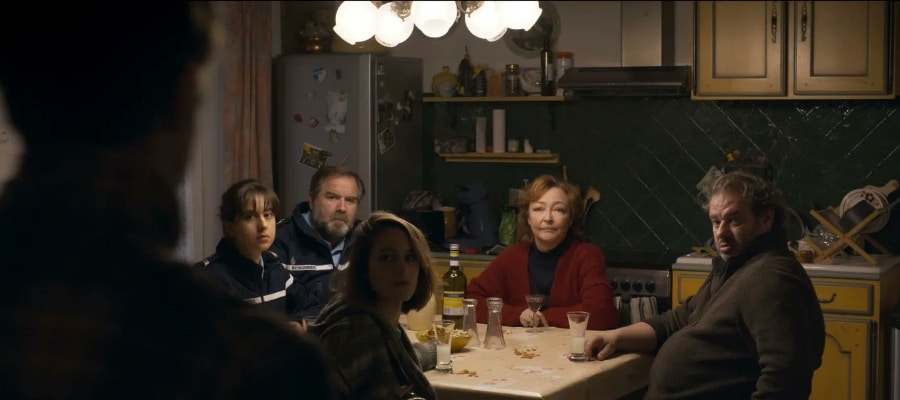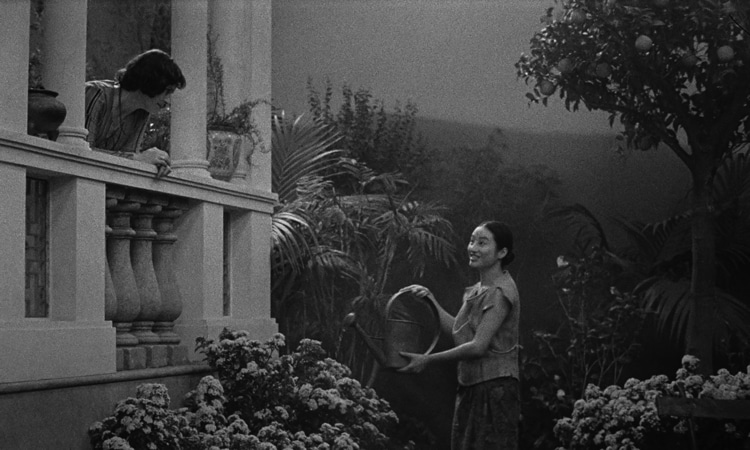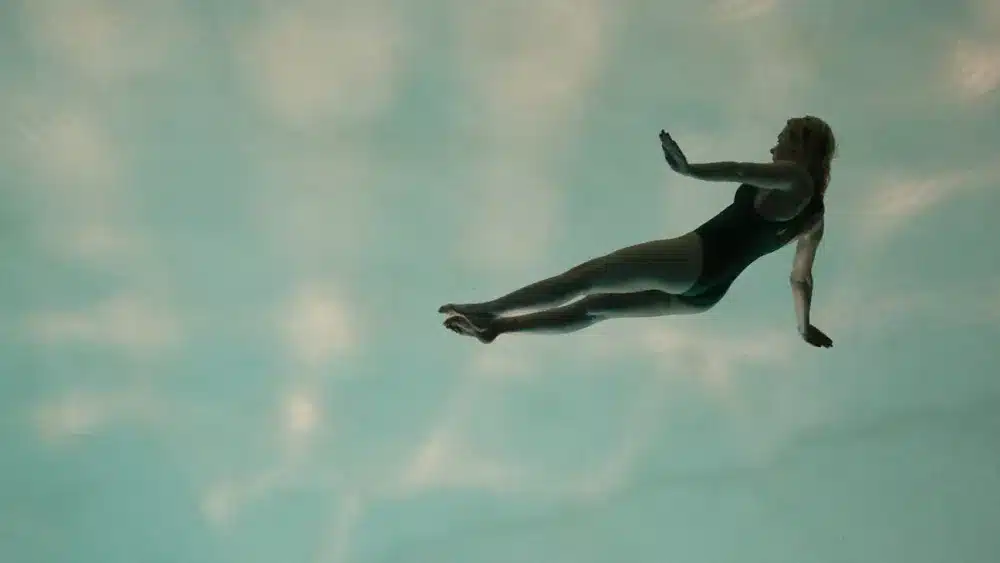
Peter Herbert found the LONDON FILM FESTIVAL in rude health in its 68th year with an impressive offering of 252 films in a rich slice of contemporary cinema alongside a smaller but effective archival strand. It would be impossible to see all of these films over 15 days but Peter managed 12 films mostly without UK distribution including a couple of exceptional films which were all worthy of screening.
Various strands and themes became apparent as the days rolled. One is the fascination to divide films into chapters both orderly and disorderly which in some cases works though not always.
Another observation is the growing power of documentary archival film assemblage and how this is moving into new forms of film essay cinema for some of the worlds key filmmakers. Here are Peter’s views and comment on twelve films viewed over twelve days.
Radu Jude and co-writer/director Christian Ferencz-Flat’s Eight Postcards From Utopia (below) was made over a period of seven years using film clips compiled from advertisements as a commentary on Romania’s transition from communism into capitalist democracy with entry into the European Union in 2007.

Steve McQueen’s Blitz opens with powerful emotional scenes of mother love set against the carnage of the bombing of London during the blitz of WW2. The ‘blitz’ of London and other parts of England by Nazi Germany killed over forty three thousand people and damaged two million houses during a short but intense blitz during 1940/1941 – although for McQueen this is background so as to foreground personal stories of characters impacted by the upheaval of war.
Alain Guiradie’s Misericordia (main pic) is a perfect new companion piece to Stranger by the Lake from 2013. The earlier film is arguably one of gay cinemas seminal films that turned a lake with forest woodland into a gay Garden of Eden/stroke evil. Created with a rigorous visual sound scape, the earlier film moved from dawn into night over a single day as a range of characters experience all of the life forces of love, life, sex and death. Guiradie returns to aspects of the earlier film with Misericordia which opens with a man travelling by car from the city into a remote rural French village. He has come to express condolences for his well-liked, respected former boss who the film intimates was also his long term secret lover. Warmly welcomed by the dead man’s widow who may or may not have known of the relationship, he is viewed with growing suspicion by the dead man’s son and disturbs members of the local community including local cops and an ageing priest with secrets who ventures into the forest collecting mushrooms but gets more than bargained for. The forest becomes for Guiradie another garden of beauty and doom filmed with his characteristic natural sound, lighting and no music bar the sounds of nature. The film mixes drama and comedy with razor sharp precision, unravelling sacred and profane twists to relationships with a few additional red herrings. After a series of over complicated films that preceded and followed Stranger By the Lake, Guiradie is back in control.
Grand Tour (below) which won for the Portuguese’s filmmaker Miguel Gomes the Best Director award at the 2024 Cannes Film Festival and has been reviewed on Filmuforia . These are additional notes prior to its world-wide release in the new year. Grand Tour offers consummate filmmaking which will take viewers on a journey into new places and far away states of mind.
Gomes was inspired by two passages from W Somerset Maughan’s 1930 travel writing The Gentleman in the Parlour and the film book ends its tale of an obsessive passion of one for another which will never be reciprocated with an approach that is beguiling and disturbing. Acknowledging F W Murnau’s Tabu (1931), Gomes uses the delirious quality of quasi monochrome, tinged with real or subdued colour to create his vision built mainly on studio sets alongside location filming. Another source of inspiration is Josef Von Sternberg and in particular the crazy amour fou between Dietrich and Cooper on a studio conceived vision of Morocco (1930).

Coincidentally Japanese director Kohei Igarashi ‘s Super Happy Forever was made concurrently and shares similar structure, themes and musical references. The two films will make for interesting crossover viewing.
Roshan Sethi’s A Nice Indian Boy is a feelgood film edited into chapters with titles including love, music and family, for no obvious reason as it unfold its story about two gay men Naveen (Karan Soni) and Jay (Jonathan Groff) as they hesitantly but gradually fall in love.
Kevin McDonald and Sam Rice-Edwards’s One to One: John and Yoko is an assemblage of archival film and aural recordings, exploring the life and times of John Lennon and Yoko Ono who after the breakup of The Beatles in 1969 left an affluent lifestyle in rural England with preference for the edgy life style offered by New Yok of the early 1970s.
Sergei Loznitsa’s The Invasion is one of the outstanding films of the festival. The director, born in Russia and raised in Ukraine is a documentary/fiction filmmaker who since 1996 has built up a recognisable collection of twenty one documentaries and four fiction films.
Yasuzo Masumura’s Manji (1964) was screened in the reduced but vital archive section of this year’s festival and received a masterly well informed, passionate introduction from Robin Baker, the BFI head of Cultural Partnerships, and Miki Zeze from Japanese distribution company Kadokawa who plan to restore and release other films from the fifty plus films made by Masumura (1924-1986).
The 42-minute Leos Carax featurette It’s Not Me (below) uses chapters to structure a self-portrait of the director’s thoughts as a freewheeling stream of conscious cut up of images and sound. This doesn’t exactly bring coherence to its visual story board concept although the film, inspired by the cut-up sound and image style of late Godard and Histoire du Cinema in particular, emerges a sparkling spinning disco ball of a film. Clips include Charles Laughton’s The Night of the Hunter and a very beautiful sequence from Murnau’s Sunrise also uses extensive still archival photographs to explore and comment on ideas and themes relating to the massive gap and change that bridge creativity during the transition of the 20th and 21st centuries.

After the films screening at the ICA, the 64-year-old Carax discussed how he feels that it is now up to and the right of new artists to explore where creativity is heading particularly in the current state of challenging world-wide change and upheaval.
Along with scenes capturing how the camera eye captures movement, extracted from copious clips from his films including The Night Is Young, Bad Blood (1986) and Les Amants du Pont Neuf (1991), there are also sequences that gaze at the beauty of youth with the life experience of actors who were once younger (Juliette Binoche and actor Denis Lavant ) and whom we see age in clips from films before our very eyes.
The film is not afraid to tackle the darker sides of the creative personality with at least one contentious reference to Roman Polanski and his early years marked by the holocaust, with a link to his later notoriety that damaged his late career. There is little time to stop and question Carax and some of his reasoning during his hellzapoppin of free-flowing thoughts but at the heart of the film he remains a positive force.
After the final credits there is a treat in the form of an ode to joy involving the beautiful puppet from Annette and the music of Bowie singing Modern Love. A modern film indeed.
Luca Guadagnino’s Queer is a study of a defeated American man, living in exile in 1950s Mexico, unsure of himself and in need of human love and contact which which will draw him into a relationship with a younger man.
Maura Delpero’s Vermiglio opens with a family fast asleep while a new day dawns on the remote hillsides of the Trentino-Alto Adigo region of northern Italy. The family awakens to the daily routine of a village community including a father as head of family who prepares to open a classroom while shepherds tend to animals. There is little to suggest these are the last years of WW2 although there are ominous sounds of warfare in the distance. The tone changes with the arrival of a soldier who has deserted the army and will stir up the awakening feelings of a young woman bringing heartache and trauma to family and herself as well as to a wider range of village and city communities.
Truong Minh Quy’s Viet and Nam closed the festival – as much as Eight Postcards from Utopia opened it – with bold challenging conceptual filmmaking. These are contemporary films confronting the sometimes-tortured psyche of respective nations with filmmakers looking for answers from past histories while opening up the possibilities of the future. Viet and Nam is a dark but strangely illuminating film that fuses written and spoken poetry with sensitive visual imagery. Peter Herbert
BFI LONDON FILM FESTIVAL OCTOBER 2024